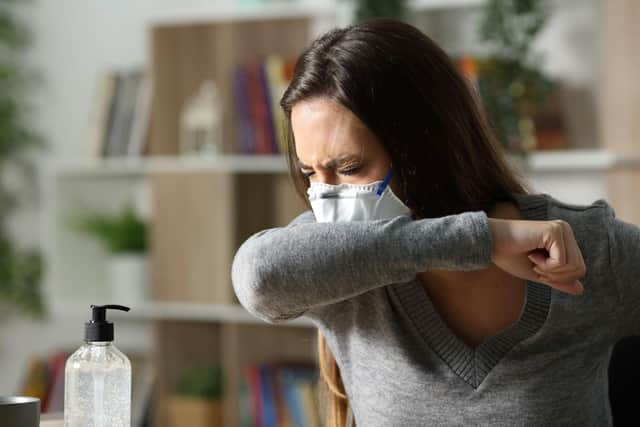Leeds woman tells of long Covid struggles as rehab programme hails ‘impressive results’
and live on Freeview channel 276
Elizabeth Bycroft, from Leeds, became ill with Covid in March 2020 during the first wave of the pandemic. It started off with headaches and a temperature, but she then became breathless. At times she felt she was dying.
As a healthcare worker, Elizabeth was able to monitor her own blood oxygen levels and they were plummeting to worryingly low levels. She was admitted to hospital and put on oxygen. After a week in hospital and a week recuperating at home, she returned to work.
Advertisement
Hide AdAdvertisement
Hide AdElizabeth, 52, said: “With hindsight, I probably went back to work too soon. I was still suffering from breathlessness and in August, I suffered a relapse. I had a range of symptoms. The breathlessness was still affecting me, but I was also feeling exhausted, and I had chest pains.


“I used to walk miles with my dogs, and attend fitness classes, and I would normally run up the stairs. After Covid, all that all stopped. I could no longer do the everyday things that had been a part of my life. If I walked up the stairs at home, I would have to go into one of the bedrooms and sit down to catch my breath.”
In November 2021, Elizabeth became part of the pacing rehabilitation trial being run at Leeds Community Health Care NHS Trust, which is based on a gradual or paced increase in a patient’s physical activity.
Before the start of the programme, the people taking part in the programme were reporting on average three “crashes” a week where they were left physically, emotionally or cognitively exhausted after mild physical or mental exertion. Six weeks later, at the end of the programme, that was reduced to an average of one crash a week.
Advertisement
Hide AdAdvertisement
Hide AdDr Manoj Sivan, Associate Clinical Professor in the School of Medicine at the University of Leeds, who supervised the research project, said:
“Long Covid affects around two million people in the UK and it has an impact on their quality of life and in some cases, their ability to work. It is distressing and disabling.
“When patients get a crash, they experience feelings of complete exhaustion and wipe out and are unable to resume activities for hours or sometimes days.
“The findings of this research are exciting because this is the first time that crashing episodes have been used as a marker for the condition and a structured pacing programme has now been shown to substantially reduce symptoms and improve quality of life."
Advertisement
Hide AdAdvertisement
Hide AdElizabeth said that her overall quality of life has improved since joining the trial.
She said: “I am not doing too badly now. I am still unable to do some things I used to do pre-Covid but I can go out walking again although I do still get breathless at times. And there are days when I feel completely exhausted, but those days are becoming fewer and fewer.
“I think I am now able to better manage long Covid. A lot of people get very down because they cannot do the things they once did. I have not yet been able to return to exercise although I hope to one day soon.”